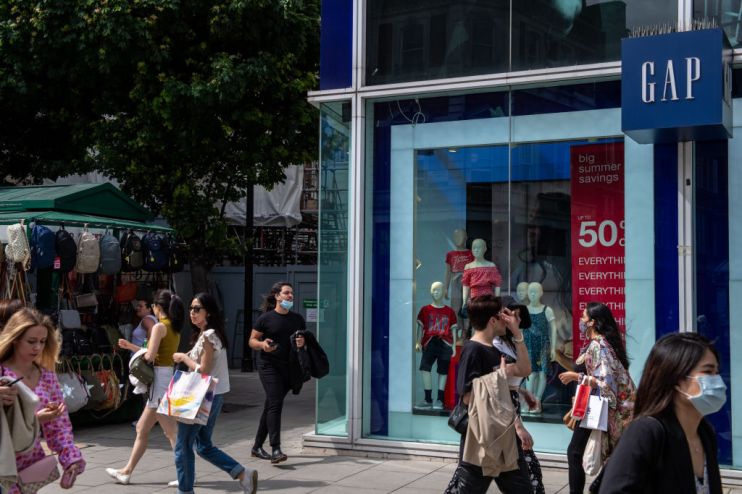UK inflation jumps to 2.1 per cent in May as clothing and fuel prices rise

UK inflation jumped in May due to rising clothing and fuel prices, pushing it ahead of the Bank of England’s target, the Office for National Statistics (ONS) said this morning.
The Consumer Prices Index (CPI) rose to 2.1 per cent in May, up from 1.5 per cent in April, beating economists’ forecast of a rise to 1.8 per cent.
The largest annual upward contribution to inflation has come from transport costs, according to the ONS.
Core inflation, which excludes the price of food and energy, rose to two per cent in the 12 months to May.
“It’s not just the heatwave getting investors hot under the collar,” said Tom Stevenson, investment director for Personal Investing at Fidelity International.
“This only adds to the global conversation on rising inflation and the concerns that come with it.”
Surge in clothing and fuel prices
On a monthly basis, surging prices for clothing, fuel, recreational goods and meals pushed the rate higher.
These were partially offset by a hefty fall in the prices of food and non-alcoholic drinks, particularly for bread and cereals.
“UK inflation is below the level in the US, as the UK has been slower to lift Covid restrictions and sterling strength has helped keep imported goods prices low,” said Emma Mogford, fund manager of Premier Miton.
“With further opening up of the economy and potential for bottlenecks in both goods and labour post Brexit, the UK number could follow the US inflation number higher.”
How will the BoE react?
The Bank of England said it expects inflation to hit 2.5 per cent by the end of this year as the economy reopens from Covid lockdowns.
Governor Andrew Bailey says the increase will be temporary and does not require the central bank to scale back its huge stimulus programmes, which it is expected to leave unchanged on 24 June after its latest meeting.
However, chief economist Andy Haldane said last week that the BoE’s policymakers faced the “most dangerous moment” since 1992 when the government removed sterling from the European Exchange Rate Mechanism.
“There is a greater level of uncertainty about prices at present, with a possibility that inflation will turn out to be higher if staff shortages persist, triggering stronger wage rises, while cost increases continue to be passed on to consumers,” said Yael Selfin, chief economist at KPMG UK.
”However, with price pressures expected to ease next year and inflation to stabilise around two per cent, it is likely that the Bank of England will hold fire and not raise interest rates before 2023.”